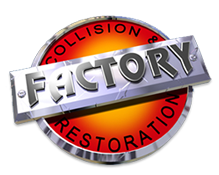After an accident or damage to your vehicle, you have a right to choose which repair technician performs your repairs. Not all repair shops are the same – they all have different areas of expertise.
When a vehicle is in a serious accident, or otherwise damaged so that it requires significant repairs, there is a process called a post repair inspection that can be done following the repairs. This inspection should be done by a neutral party, not one who was involved in the accident, the repair, or the claims process.
What is a Post-Repair Inspection?
During a post repair inspection, a neutral party will examine the repairs that were done to a vehicle. The inspector won’t need to repair anything, especially not at first. Their job is to look at the repair job, inspect the quality of the repairs and the parts, and identify any potential issues, especially those related to safety.
What is Diminished Value?
Following an accident or serious damage, parts may need to be repaired, or replaced. Depending on the parts that were used to replace the old ones, and the quality of the repair, the value of the vehicle may be affected. One of the duties of a post-repair inspector is to identify these new parts and repairs, and evaluate how they affect the value of the vehicle.
In some cases, this diminished value amount may be covered by an insurance company – but only if identified by a qualified professional.
Why Should I have a Post-Repair or Diminished Value Inspection Performed?
There are several reasons to have a post-repair inspection or a diminished value inspection performed following any major repairs to your vehicle!
● The inspection can identify any safety issues with your vehicle.
● You may find that the shop you trust with your repairs is either worth that trust – or not!
● If your vehicle has a diminished value, you may be reimbursed by the insurance company following a professional inspection.
What does a DRP have to do with it?
In some cases, auto repair shops have agreements, called DRPs, with insurance companies. These agreements usually require the repair shops to follow some guidelines, set by the insurance company, to promote fast, inexpensive repairs without as much paperwork. If the repair shop follows the insurance company’s rules, the insurance company agrees to pay for repairs performed, quickly. However, sometimes this can lead to rushed repairs and inexpensive parts – which may affect a vehicle’s value, safety, and more.
If an insurer pressures me to go to a shop they prefer or try to steer me away from my chosen shop, is for my benefit or theirs? And who does that shop have loyalty to?
What you don’t know can hurt you
After an accident, it doesn’t matter who is paying for the repairs, it is you, and only you who gets to make that decision. Some insurance companies will go out of their way to attempt to steer or direct you to one of “their” preferred shops on a list they give out. In most states you can get a list of registered repair shops who are licensed by the state to perform repairs.
In Massachusetts the shop is required to have a surety bond or letter of credit to cover minimum of $10,000.00. In any case you needn’t call your insurer for a list there is one available on line from Automobile Insurers Bureau.
There are no asterisks or bold printing just a simple list with names and addresses of repair shops in your county. That way you can make your own decision about your car and your safety. After all, you paid for the coverage with your money.

Recent Comments